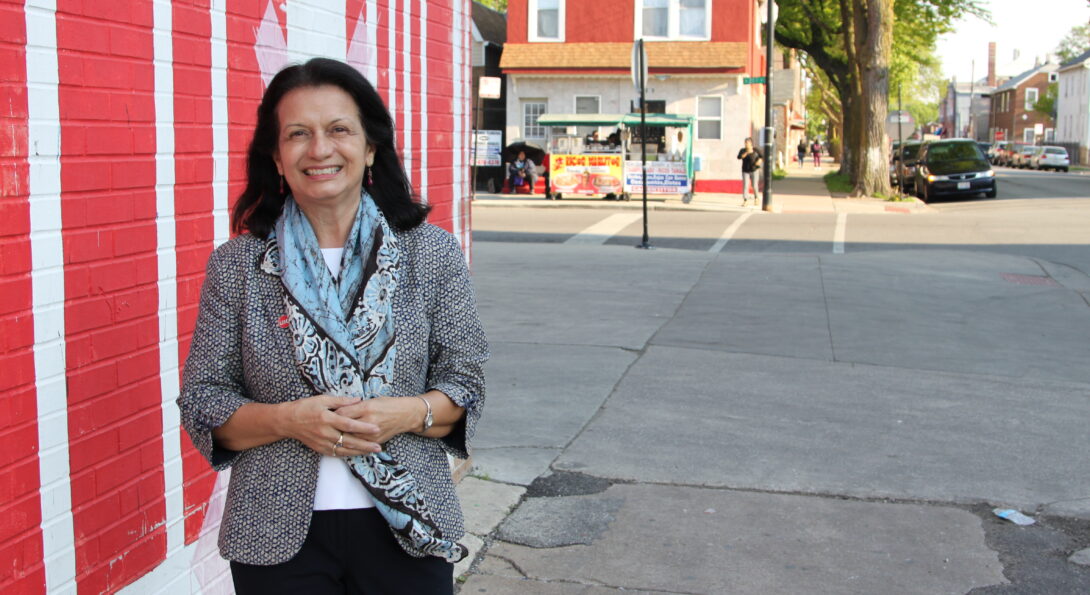Talking the walk

Walking around the neighborhood is the most common form of exercise—and an important way to participate and engage in the community.
But for residents of some Chicago neighborhoods, especially older adults and people with disabilities, this simple activity can be hazardous because of traffic, broken sidewalks and lack of curb cuts.
Those are the findings of a study by Yolanda Suarez-Balcazar, professor and head of occupational therapy in the UIC College of Applied Health Sciences, and a team of occupational therapy students.
The students staked out 25 intersections and 52 blocks in Chicago's Pilsen neighborhood near the UIC campus. They recorded safety issues that discourage walking and participation, and neighborhood features that invite walking and community engagement.
Among the more shocking safety concerns: only 29 percent of vehicles exiting an alley yielded to pedestrians and fewer than one-third of cars stopped at stop signs.
“We saw instances of cracked sidewalks, uncut curbs and similar issues that make it unsafe for people, especially the elderly and those with disabilities, to engage in their community,” says Suarez-Balcazar.
“Now we’re methodically collecting data to quantify these issues. We’re planning a campaign in collaboration with local community agencies to bring this to the attention of policymakers and city officials who can act to improve conditions."
The work is part of a project funded by The Chicago Community Trust.